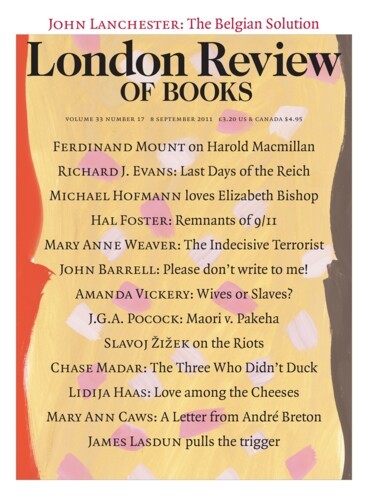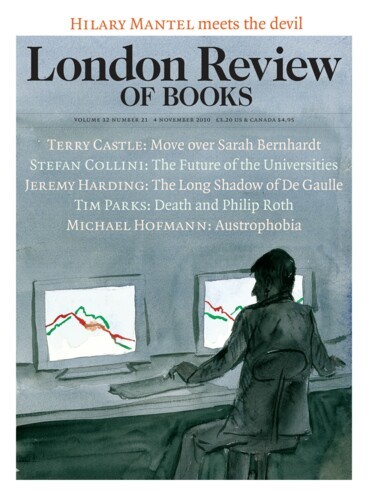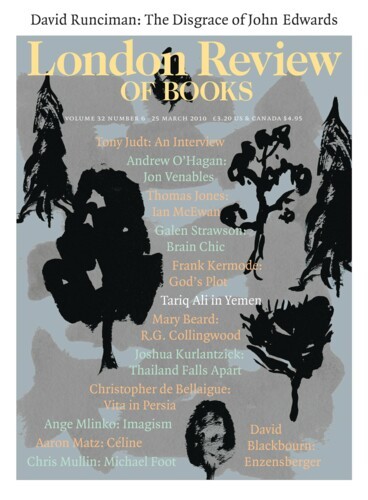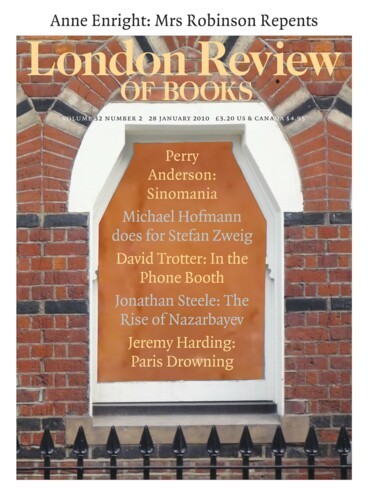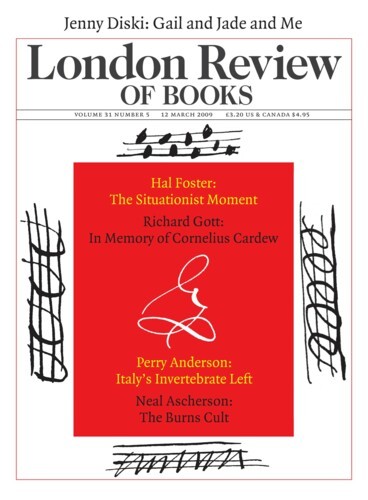Mostly Middle: Elizabeth Bishop
Michael Hofmann, 8 September 2011
It is John Ashbery who takes the cake – in this case, the triple-decker cake with the solitary little sugar bride on top – for his description of Elizabeth Bishop: she is ‘the poets’ poets’ poet’. It sounds farcical, but it’s strictly true, and there’s as little getting round it as there is improving on it. As I begin, therefore, I feel stirrings...
